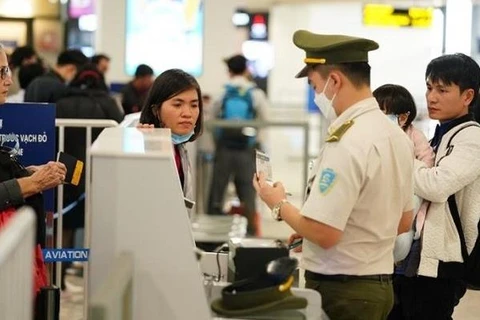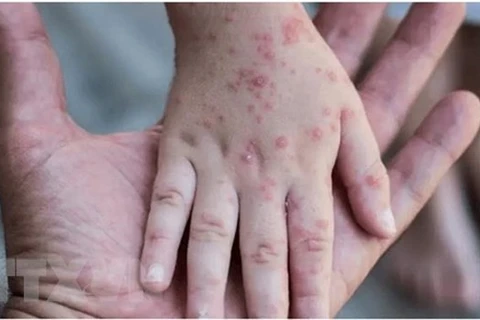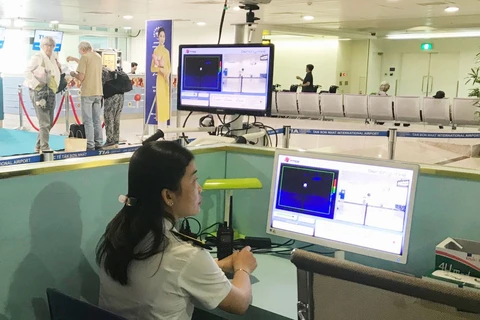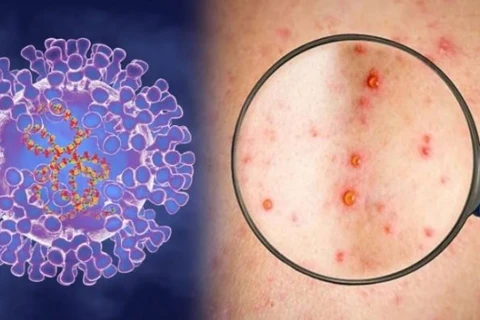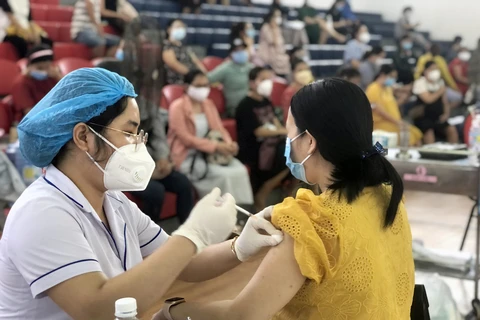Hanoi (VNA) - The Ministry of Health has asked localities nationwide to monitor foreign arrivals from countries with monkeypox as an early response after infections were spotted in the region.
Thailand, Singapore, the Republic of Korea, China and Japan are some of the countries where monkeypox has been detected.
Per the latest decision, foreign arrivals from countries with monkeypox will have their body temperatures checked and be subject to other monitoring measures. Those suspected to be infected with the condition will be isolated and have their biological samples taken for testing.
The ministry is yet to issue specific instructions on how foreign entrants from countries with monkeypox should be monitored, or when exactly these measures are to be applied. Vietnam has not recorded any monkeypox cases so far.
Last week, Ho Chi Minh City proposed that foreign arrivals are asked to complete medical declarations at the border as one of the anti-monkeypox measures.
Besides screening measures at the border, the ministry has also requested monitoring at different health facilities and added vigilance at certain events in the community.
As of July 30, the World Health Organisation (WHO) had recorded over 21,000 monkeypox cases in 78 countries and territories. Seven people have died. Typical symptoms of the disease include fever, headache, muscle pain, skin lesions and rashes. It is transmitted through contact with bodily fluids or lesion material./.
Thailand, Singapore, the Republic of Korea, China and Japan are some of the countries where monkeypox has been detected.
Per the latest decision, foreign arrivals from countries with monkeypox will have their body temperatures checked and be subject to other monitoring measures. Those suspected to be infected with the condition will be isolated and have their biological samples taken for testing.
The ministry is yet to issue specific instructions on how foreign entrants from countries with monkeypox should be monitored, or when exactly these measures are to be applied. Vietnam has not recorded any monkeypox cases so far.
Last week, Ho Chi Minh City proposed that foreign arrivals are asked to complete medical declarations at the border as one of the anti-monkeypox measures.
Besides screening measures at the border, the ministry has also requested monitoring at different health facilities and added vigilance at certain events in the community.
As of July 30, the World Health Organisation (WHO) had recorded over 21,000 monkeypox cases in 78 countries and territories. Seven people have died. Typical symptoms of the disease include fever, headache, muscle pain, skin lesions and rashes. It is transmitted through contact with bodily fluids or lesion material./.
VNA

